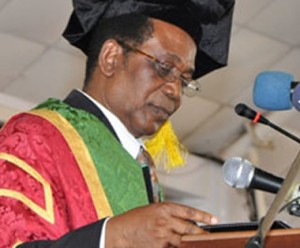Private Universities in Ghana complaining about accreditation costs

Private universities have expressed concern over exorbitant accreditation and affiliation fees paid by them, saying it undermined the provision of quality tertiary education for qualified candidates.
They said Institutional accreditation fees have “dramatically jumped from $4,000 to $20,000 while programme accreditation has ballooned to GH₵6,000 from GH₵ 2,000 per programme introduced.
“Apart from this, affiliate institutions pay a whole range of fees including dollarised institutional fees,” Professor Kwesi Yankah, Chairman of the Council of Independent Universities, comprising 30 private universities, told journalists on Tuesday.
Professor Yankah, who is also the President of the Central University College told the Ghana News Agency that the University of Ghana charges new fees of $15 per student in affiliate institution.
He described the new fee charge as “exploitative and arbitrary” and called for its immediate withdrawal or the possible effect would be the continued rise in tuition fees passed on to students to compensate for the increasing cost.
He also condemned the high bureaucracy in approving programmes by mentoring institutions as the same process was taken through by the National Accreditation Board.
“Due to the long bureaucratic processes involved in the dual exercise, it may take at least two years for a new programme prepared and developed by a private university college to be mounted,” Professor Yankah said.
He noted that private institutions noted for innovation and quick response to national needs, particularly, reducing graduate unemployment were frustrated in the process, saying: “ for it undermines their mode of operation, and weakens their capacity to respond to emerging needs in the labour market.”
He explained that the situation was worsened when a private university had more than one mentor [public university A, B or C that had distinct intellectual and administrative traditions, leading to “total confusion.”
“The situation leads to complete sacrifice of the institution’s [private university] own identity which is completely replaced by multiple identities of the various mentoring institutions [public universities],” he said.
The Council said the private universities were barred from introducing new programmes that met current labour market needs or restrict them to mounting three new programmes with the explanation that “their hands are full.”
“Some private universities in the absence of a local mentor are compelled to abandon new programmes, or seek affiliation from a university outside Ghana, for programmes that are otherwise tailored to suit local needs,” the chairman added.
The Council therefore called on government to initiate a process of abolishing the system of affiliation to public universities, and restructure the National Accreditation Board as well as streamline its operations to maintain standards in universities as done in several African countries.
Source: GNA
